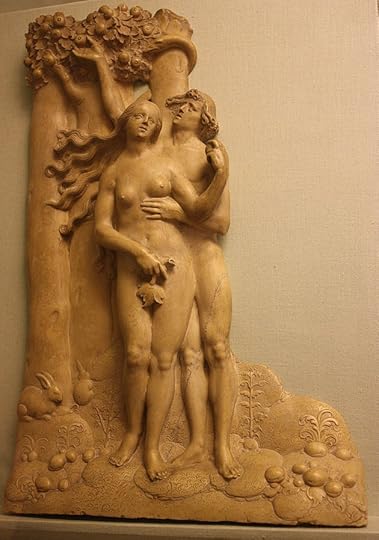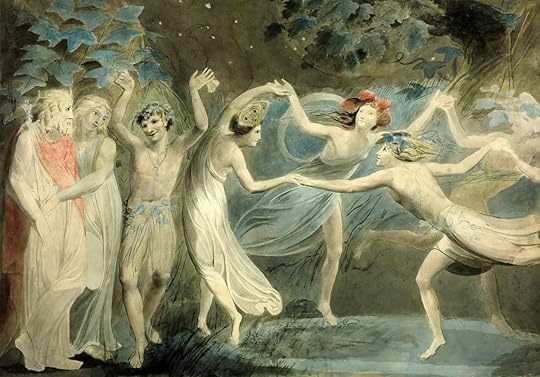Stephen Roney's Blog, page 128
July 21, 2022
Hope for Canada?
I pity the UK its sad choice of prospective Conservative leaders. It feels like a tragedy that Boris Johnson, with his great political talents, so quickly flamed out. No argument; it was his own fault. He could not stay. But now the right has no one impressive to speak for them.
The US also has a problem. They have impressive figures on the right, notably Ron DeSantis, Rand Paul and Tucker Carlson, but Donald Trump dominates, and probably blocks anyone else from taking the nomination. Trump too is impressive, but also alienates a dangerous proportion of the electorate, and brings chaos in his wake, at a time when most Americans probably want competence and common sense to return.
By contrast, I feel we I Canada are suddenly, after a long drought, surprisingly lucky. We have Pierre Poilievre, Leslyn Lewis, and Maxime Bernier, all of whom seem both impressive and (relatively) honest.
'Od's Blog: Catholic comments on the passing parade.
July 19, 2022
All Things Visible and Invisible
It has been brought to my attention recently that a large number of people, possibly a majority, actually believe that the physical world is the real world. Not just that the physical world is real—which is debatable—but that there is nothing beyond the physical world—which is stark insanity.
What brings me most immediately to this thought is some poems appearing in my email box from the League of Canadian Poets, under their “Poetry Pause” programme (you can sign up free here). One was just the poet describing her body:
Most loyal beautiful body
--Who aches only for your love.
Another was the poet describing her desk.
A surplus teacher’s desk,
solid oak, three heavy drawers
on each side of a skirted knee-hole.
There is no poem to such poems. Poetry speaks of the transcendent. We do not need it to talk about what is before our eyes.
Another example of materialism, in the textbook from which I taught this morning: it took pains to distinguish between “fact” and “opinion,” but never noticed or noted that there is a more important third category, truth that is not fact. Here’s an obvious example:
We hold these truths to be self-evident, that all men are created equal, and are endowed by their creator with certain unalienable rights, that among these are the right to life, liberty, and the pursuit of happiness.
Not a trivial point.
In the wider world of truths, facts are trivial; yet only facts are acknowledged by the standard textbooks.
Another example: most people are quick to deride “materialism,” but then they think that materialism simply means wanting or having wealth. A purely materialistic concept of materialism, a cartoon. They are not out of the box. They just resent people who have more material than they do.
I read a poem at a recent meeting of a poetry society, which asserted, in rhyme, that the delusions of the mentally ill had truth in them beyond the ken of psychiatrists. “There are more things in heaven and earth, Horatio, than are dreamed of in our philosophy.”
And if he asks in riddle who you are
You must lie as dead as paper-thin straight line
Assume a name--say, one you took at birth
And pretend you only know of space and time.
Surely a group of poets would get it.
The first reaction from an audience member: it reminded them of Ogden Nash, or Alexander Pope.
What? Either meaningless nonsense, then, or mere clever wordplay. Pope is conspicuous for never speaking of the transcendent. For this Blake mocked him.
I can’t decide whether that respondent was trying to deny the existence of anything beyond the senses, or whether he was really so lobotomized in his view of existence.
Another listener chimed in that she liked the poem, and had often written herself about social justice.
Another common modern tack. Poets now all always either talk about “nature,” meaning the purely material world, or politics, the quest for power over others. Neither is worth an honest poem.
It seems to me necessarily true that anyone who is not fully aware of the world beyond the visible is lacking a soul. More or less by definition. They are only robots.
Yet realizing that many are at this spiritual level explains the common conflation of just about everything with sex and power.
'Od's Blog: Catholic comments on the passing parade.
July 18, 2022
Mad Dog!

An interesting insight into dog psychology from Wikipedia. I quote: “Attempting to teach Siberian Huskies aggressive behavior can lead to mental problems in the dog.”
It is reasonable to suppose that what causes mental problems in dogs is the same as what causes mental problems in humans. Not teaching aggressive behavior specifically, but, in both cases, teaching things that violate their conscience.
This is the result, most often, of bad parenting, by parents who themselves have no morals. These are the parents Jesus says would be better thrown in the ocean with a millstone around their necks, for causing “little ones” to stumble.
Sadly, it is those children who have the strongest conscience who will be most severely affected by such ill counsel--the best among us.
Modern psychiatry or psychology is unable to help the mentally ill, because they begin with the premise that there is no right and wrong. This makes mental illness “incurable.” Getting back in touch with objective morality is the cure.
'Od's Blog: Catholic comments on the passing parade.July 17, 2022
Original Sin

Lots of us have trouble with the concept of original sin; including the Catechism of the Catholic Church: “the transmission of original sin is a mystery that we cannot fully understand." Paragraph 404.
After all, it doesn’t seem fair—that one person should suffer for the sins of another.
Indeed, it is not fair; but it is the essence of the Christian message. Jesus died for our sins.
And it is obviously, objectively true. We all benefit and suffer from the actions of others: our ancestors, our countrymen, most obviously, our parents. Some of us were lucky enough to be born in a rich family, some in a poor one. That has given us a better shot. We had nothing to do with that, and it is not fair. Some of us have had abusive parents, and some of us have had parents who coddled or spoiled us. That is not fair. Some of us were born in Canada, and some of us in Ukraine. We had nothing to do with it.
All of us trace our lineage back to Adam and Eve. Having sinned, and departed from original innocence, they passed this on to their children through imperfections in their upbringing. So we have Cain murdering Abel. Cain or Seth passed the seed of bad upbringing on to their children, who passed it on to theirs, on to Noah, who passed it on to Shem, Japheth, and Ham, who passed in on to the children of Lot, who passed it on to those responsible for founding Canada or the Ukraine, who passed it on to our parents, who passed it on to us.
It is, necessarily, in all cases, essentially sin. It is only relative degrees of sin. All far short of original perfection, and so all fall short of proper parenting. All children suffer from bad parenting, to greater or to lesser degree. This is why Philip Larkin wrote:
“They fuck you up, your mom and dad.
They may not mean to, but they do.
They fill you with the faults they had
And add some extra, just for you.”
Not to excuse parents—all parenting is not equal. Some parents are also intentionally evil. This is why Jesus says, “If anyone causes one of these little ones—those who believe in me—to stumble, it would be better for them to have a large millstone hung around their neck and to be drowned in the depths of the sea.”
This is a fundamental problem. This is the original problem. Because we are naturally inclined, as children, to see our parents as the measure of all things, as our ground of being, the source of truth and morals, as gods. Accordingly, the errors and the sins they tempt us to are difficult to erase, and probably require divine intervention. It is the first and most dangerous idolatry.
This is why the Bible says, more than once, that “the sins of the father are visited upon the sons, unto the third and fourth generation.” This is why, when one prospective Christian wants first to bury his father, Jesus says “let the dead bury their own dead.” This is why we must be born again. We must fight free of the taint of our upbringing.
The Christian message has often been perverted to be one of “family values.” That is not in the Bible; that is the opposite of the Biblical message
“Honour your father and your mother,” yes. But that means support them in their old age, and ungrudgingly. Idolizing them is the greater danger. It is comparable to idolizing your motherland. We know from Nuremberg where that leads. But idolizing a parent is a greater risk than idolizing your motherland.
It is the original sin.'Od's Blog: Catholic comments on the passing parade.
July 16, 2022
There May Be a Reason Why No Graves Were Marked
July 15, 2022
Bastille Day

Xerxes, famed anonymous left-wing columnist, appears to believe democracy is doomed. He foresees only two possibilities: either sudden collapse, or slow decline. His evidence is the January 6 trespass in the US Capitol, and the Freedom Convoy in Ottawa last February.
I think instead the arc of history favours the growth of democracy. It has to do with the advance of communications technology. Before the invention of movable type, and in general poverty, the scarcity of information demanded government by the few who were educated and therefore in a position to understand the issues and options. There were small democracies long ago, in Greece, Mesopotamia, and the Nordic countries, but these tended to depend on the institution of slavery. Free voting men were an elite minority of the overall population.
With printing, information became more plentiful, and representative democracy become more plausible. The common man was now informed enough at least to be capable of selecting his preferred more learned experts. This took centuries to develop, because it took the printing press centuries to spread and generate a large enough corpus of cheap information. And printing technology improved; benefitting like other tasks from the mechanization of the Industrial Revolution in the 18th and 19th centuries. The Industrial Revolution also, in increasing wealth, gave more people the leisure to read. So things really took off then.
With the Internet, in principle, information is now again becoming exponentially more available. This time it will not take centuries; only years.
The inevitable upshot will be something closer to direct democracy. Experts will be largely replaced by expert systems, available to everyone.
We are commonly told that automation will make the lower classes unemployable. But the opposite is more likely to happen, and is happening. It is making the ruling classes redundant.
Brexit, the election of Trump, the Ottawa Freedom convoy, the January 6th trespass in the US Capitol building, and the current Dutch farmer protests, are, I think, early eruptions of this new and probably unstoppable trend to direct popular government. The emperor is being revealed in his nakedness, and the peasants are gathering their pitchforks.
It is not as peaceful as it should be, because of the resistance of the privileged to losing their power. The natural reaction is to double down. We saw the same after the invention of printing. First, the aristocrats countered with a new ideology of the “divine right of kings,” and grew more, not less, autocratic. Kings tried to strip powers from the nobles, once the nobles were proven useless, rather than passing it to the people. But over time this was unsustainable in competition with those nations that bent early to the winds of democracy.
We are similarly seeing many governments around the world suddenly become more autocratic; sadly including Canada. But this will be similarly unsustainable.
We live in interesting times.
'Od's Blog: Catholic comments on the passing parade.
July 14, 2022
Mr. Biden, Tear Down This Wall
JJ MacCullough is more or less suggesting that Canada be annexed by the USA.
It is not an unreasonable desire—especially given the current rapidly eroding state of freedom in Canada. We ordinary Canadians might soon welcome the sight of American soldiers in our streets.
There never has been a very strong argument for Canada being a separate country. There is little cultural difference between English Canada and the USA. So little that the average Canadian could chat with the average Midwesterner for some time without detecting they are from different countries. If attacked, Canada could not by itself defend its vast land area. We depend on American support for defense. Unification would cement it; remaining independent is freeloading. We may not be able to afford such freeloading much longer, with the rising power of China. And Canadians pay a premium in standard of living and career opportunities for not being fully part of the big US market.
The best argument against annexation is that the Americans don’t want us. Amalgamation with Canada would presumably mean ten more US States, each with two senators, and they would probably all be Democrats. That’s not going to fly with Republicans. For the same reason, Puerto Rico is not admitted to statehood, although they have voted for it. New states have usually joined in pairs, one likely to lean left, one likely to lean right.
And there is more positive reason for Canadian independence. It is a protection for our freedoms. If the government in one place goes bad, the border is near, and assimilation is easy. This was helpful to escaped slaves before the US Civil War; then to Jefferson Davis after it. It was helpful to young Americans during the Vietnam War. It was helpful to William Lyon Mackenzie and the Canadian patriotes after the failure of the rebellions of 1837, and to Riel after the Red River rebellion. We seem to need it now.
Perhaps the best of both worlds would be simply making crossing the border easier. How about mutual automatic right of residence for citizens of either country?
While a porous southern border might be a problem for the US, this open border is not going to cause a flood of either economic migrants or wards of the state. Levels of prosperity and government services are comparable in both countries.
Such a mutual automatic right of residence used to exist between Canada and the UK, and worked well. It currently exists between Australia and New Zealand.
It would be certain to make both countries more prosperous.
'Od's Blog: Catholic comments on the passing parade.
July 13, 2022
Breakfast Tacos
Jill Biden is facing criticism for lauding the diversity represented by the “breakfast tacos” of San Antonio.
In a way, the criticism seems unfair. She meant well. But I also understand the outrage. This is multiculturalism: it reduces ethnic minorities to a human zoo, dancing for us in colourful costumes and opening interesting restaurants. Sources of idle entertainment. Consider speaking to a group of black Americans about how much you love fried chicken and watermelon.
I am similarly annoyed, as one of mostly Irish extraction, by St. Patrick’s Day pictures of dancing leprechauns. Ah, those Irish: stupid, but always happy. I’d rather be associated with James Joyce, Sinead O’Connor, Bishop Berkeley, Edmund Burke, Guy Carleton, W.B. Yeats, the Great Famine, and Easter 1916. And not be reduced to a cartoon.
The matter hits home just now—along with her mispronunciation, in the same speech, of “bodegas”—because it feels as though it reveals something about the Democrats. They don’t understand and don’t care about minorities. They don’t waste the time of giving them a serious thought.
Back when I was younger, it was similarly assumed that the Irish or the Italians would always vote Democrat. It was, after all, the party of Tammany Hall, of Richard Daley, of Al Smith and the Kennedys. We used to think of the Republicans as alien and Protestant.
Now we have prominent Irishmen on the Republican right: Bill O’Reilly, Sean Hannity. We have prominent Italians: Samuel Alito, Antonin Scalia. More prosperous then we once were, Irish and Italian Catholics no longer follow the instructions of city ward bosses. We cannot be bought as a unit.
The same is inevitably happening now with Hispanics: Ted Cruz, Marco Rubio.
The Democrats have been banking on Hispanics to ensure them a permanent majority in the near future. It is not going to happen.
'Od's Blog: Catholic comments on the passing parade.
July 12, 2022
The Uses of Enchantment
 William Blake's illustration to "A Midsummer Night's Dream"
William Blake's illustration to "A Midsummer Night's Dream"Northrop Frye realized that Shakespeare’s comedies and romances always featured a “green world,” in which the hero finds himself, one way or another, in about Act Three. In it the protagonist’s problems all are solved, to produce the play’s happy ending. It should not be necessary here to enumerate all the examples; Frye has cited them for us.
A valuable insight, but Frye was not all that smart. He then identified this “green world” with nature and with fertility rituals.
But the “green world” is never natural. Sometimes it is forested; but it can as well be Belmont, Portia’s castle. It is, rather, supernatural, which is the very opposite of natural. Think of Prospero’s island in The Tempest. The one consistent feature is that magic happens there. It is generally populated by fairies. It is fairyland.
Where is fairyland? Not out in the physical woods or wilds; in the imagination, in the forests of the night. It is the place where dreams and stories come from.
Shakespeare is the world’s greatest psychologist. His ability to see and express the motivations of his various characters is legendary; only Dostoyevsky comes close. And he is saying here that the cure for spiritual problems or for life problems—for “mental” problems—is the land of story, of art, of “play,” of the imagination.
He explains in Hamlet that art “holds the mirror up to nature.” But he does not mean nature is the sense of the physical world where man is absent. He means human nature. Read the full quotation:
“playing, whose end, both at the first and now, was and is, to hold as 'twere the mirror up to nature: to show virtue her feature, scorn her own image, and the very age and body of the time his form and pressure.”
Art shows virtue, scorn, and the zeitgeist; not moss or rabbits.
Beyond his own plays with their “green world,” Shakespeare is pointing here to the value of fairy tales as a cure for spiritual disorders.
“The play’s the thing/With which to catch the conscience of the king.”
We ought to listen to him.
'Od's Blog: Catholic comments on the passing parade.
July 11, 2022
What Is a Woman?

The Anglican Church has declared they do not know what a woman is.
“There is no official definition, which reflects the fact that until fairly recently definitions of this kind were thought to be self-evident."
Why does a church need an official definition of anything? This is what dictionaries are for. It is a simple m,matter to look up the term in the Oxford English Dictionary:
"An adult female human being."
You're welcome.



